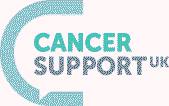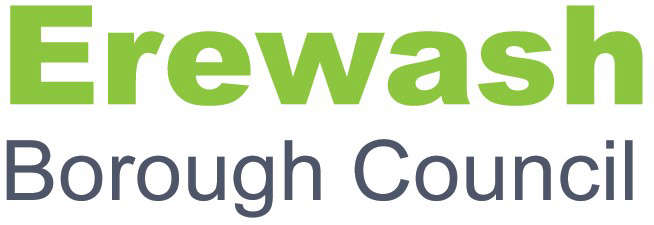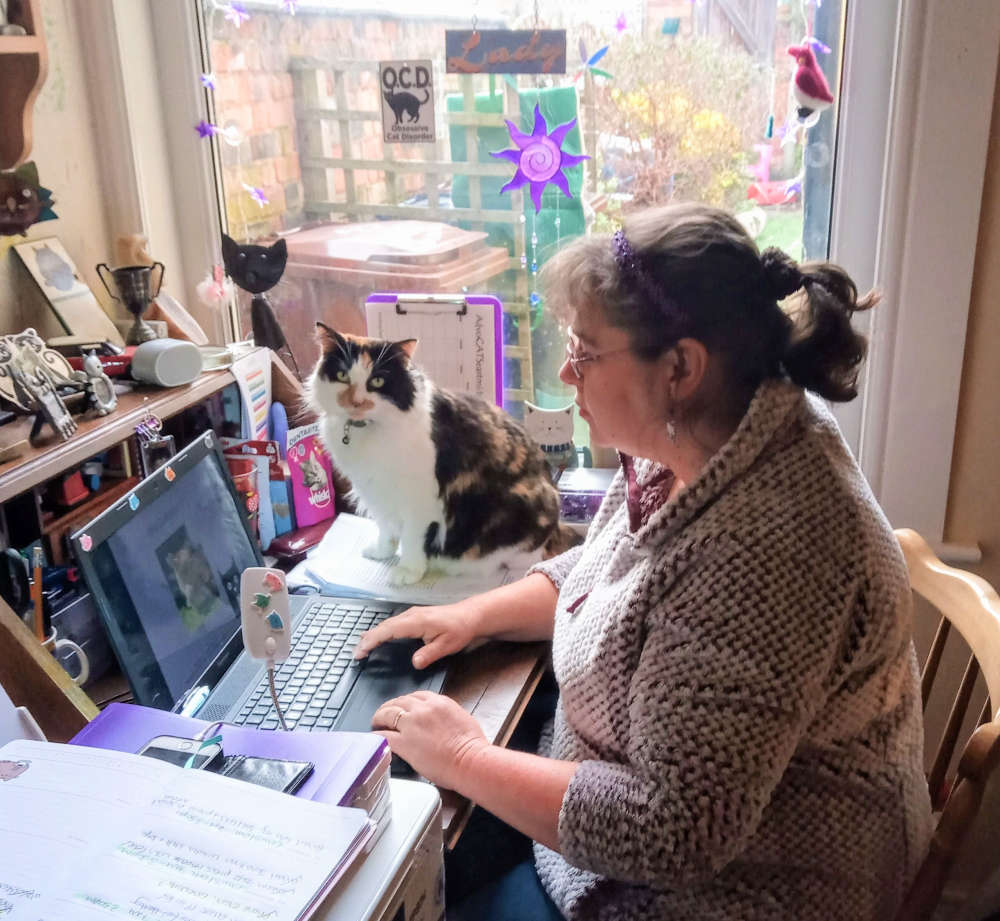
A spokesperson for Cancer Support UK has said that understanding how cancer contributes to vulnerability is key to improving outcomes in customer service provision.
The national cancer charity, which already delivers specialist workplace cancer support training to organisations across the UK, has developed a bespoke vulnerable customer training module based on feedback from disillusioned cancer patients and organisations failing to successfully manage cancer-related conversations with customers.
The number of vulnerable people in the UK, including those with a cancer diagnosis, is increasing. More than 3 million people currently live with cancer, while 47% of adults have vulnerability characteristics ¹.
In the UK 24.9 million people have characteristics of vulnerability ² – this number continues to increase. Of that 24.9 million, one in two people (12.45 million) will unfortunately receive a cancer diagnosis in their lifetime ³.
Designed to help customer service teams provide appropriate support to cancer-impacted customers, Cancer Support UK's new course covers key skills such as the use of cancer appropriate language, active listening, fostering empathetic conversations, self-care, signposting and a solid grounding in the physical and emotional effects of cancer. This includes an in depth look at potential ongoing side effects, a combination of which, customers are likely to be experiencing at the time they interact with customer service teams. The training then allows these skills to be put into practice in a safe and supportive environment, through exploring scenarios that staff may face.
Critically, these scenarios are bespoke, tailored to an organisation’s individual requirements. This ensures that the learning from the training is highly relevant and has a practical application for the attendees.
Cancer Support UK CEO Mark Guymer said: “Each year, around 392,000 people in the UK are diagnosed with cancer. That’s one person diagnosed with cancer at least every 90 seconds⁴. In the UK 24.9 million people have characteristics of vulnerability – this number continues to increase. Of that 24.9 million, one in two people (12.45 million) will unfortunately receive a cancer diagnosis in their lifetime.
“According to NICE’s Changing Face of Vulnerability Survey (2024), less than 17% of UK consumers self-identified as vulnerable. Yet when assessed against the Financial Conduct Authority’s four drivers of vulnerability (health, life events, resilience and capability) as many as 67% could potentially be vulnerable. This includes people with a cancer diagnosis, which is classed as a disability under the Equality Act (2010), giving people important rights.
“We identified the need for cancer-specific vulnerable customer training when our Cancer Coach participants started telling us about the problems they were facing. There was a lack of understanding of their side effects, symptoms and the impact that cancer has on day-to-day living. The cumulative effect this has on their emotional well-being and recovery is incalculable.”
A vulnerable customer is defined by the FCA as: “someone who, due to their personal circumstances, is especially susceptible to harm, particularly when a firm is not acting with appropriate levels of care.”
While customer facing organisations have a responsibility to treat all customers decently and fairly, it is particularly important that they are aware of their duties towards vulnerable consumers.
For example, any organisation that offers financial advice or financial services is regulated by the FCA (The Financial Conduct Authority), which also provides clear guidance on the treatment of vulnerable customers.
Mark Guymer continued: “With an ever-increasing number of people being diagnosed with cancer, it’s vital that vulnerable customers affected by cancer are assessed individually so that they receive appropriate support for their circumstances, whether that relates to physical health issues or financial needs.
“We know from our conversations with people with cancer, that they have to explain their situation multiple times within an organisation because no-one knows how to help them.
“They are also not comfortable discussing cancer or cancer treatments with customer service staff who have little awareness or understanding of the complexity of their individual circumstances. Vulnerable customers with cancer should not be penalised for their illness with inflexible policies that fail to take into account their changing needs.
“Our training gives staff the confidence in speaking with people impacted by cancer and in turn it makes the person affected by cancer feel better about communicating with their service provider. This also makes the employee feel better. Feedback from our training shows that confident, knowledgeable staff provide a better service and are more effective in dealing with customers. This means customers will be happy and satisfied and more likely to return.”
Hayley Perks, Head of Consumer Affairs at NHBC reached out to Cancer Support UK when she wanted to find training for their Vulnerable Customer Champions, to enable them to support frontline staff having difficulty talking to customers with cancer.
“Our data shows that, increasingly, health issues, such as cancer, are affecting our customers. Some frontline colleagues were finding it challenging having cancer-related conversations, because they lacked the knowledge to support these customers.
“We want to give our customers a better experience, but we didn’t know how to help customers with cancer. We reached out to Cancer Support UK for guidance, and they developed vulnerable customer training for our champions. We now have an effective framework that includes NHBC-specific scenarios. In addition, all frontline colleagues have access to Cancer Support UK’s vulnerable customer E-learning module.”
“Feedback from colleagues who have completed the training shows what a difference it has made. They’ve found it really useful learning about the different treatments available and what possible side effects people can experience from having cancer treatment. The training has given them the confidence and knowledge to provide these customers with effective support. It was vital to get the right training in place so that we can give our customers the best possible experience.”
One in two people will be diagnosed with cancer in their lifetime (Cancer Research UK). This means that in addition to customers being affected by cancer, many staff members within an organisation will be either directly or indirectly impacted by cancer. When employers show they are striving to better understand and support people living with and beyond cancer, this not only improves the relationship with customers, but also internally with their staff.
The financial impact of cancer can be devastating. Four out of five people with cancer are, on average, £570 a month worse off. As a result, many experience a detrimental effect on their physical health and mental wellbeing⁵.
Customers can become vulnerable at any time in their life. The FCA’s guidance ⁶ highlights the importance of understanding the impact of vulnerability, arising from a range of circumstances (including lack of financial capability skills, mental and physical health issues, age, lack of English, redundancy, divorce and physical and mental disability), on customers’ needs.
The FCA expects organisations to be able to identify possible indicators of consumer vulnerability at the point of sale and during the servicing of financial products. It stresses that staff should have the right skills to meet those needs. A failure to have due regard to the vulnerability of customers can result in significant regulatory consequences for firms.
However, with appropriate specialist training, customer service teams can ensure fair treatment and achieve positive outcomes for both the customer and their organisation.
¹ Financial Lives 2022 Survey
² Financial Lives 2022 Survey
³ Cancer statistics for the UK - Cancer Research UK
⁴ Cancer statistics in the UK - Macmillan Cancer Support
⁵ No small change report - Macmillan Cancer Support
⁶ Finalised guidance FG21/1 Guidance for firms on the fair treatment of vulnerable customers Feb 2021 – Financial Conduct Authority

 Two men charged after an incident in Ilkeston
Two men charged after an incident in Ilkeston
 How over £2.5m has boosted Erewash
How over £2.5m has boosted Erewash
 Long Eaton-based pets charity slams House of Lords renters bill meddling
Long Eaton-based pets charity slams House of Lords renters bill meddling
 Discount of up to £3,750 on electric cars set to slash costs for thousands
Discount of up to £3,750 on electric cars set to slash costs for thousands
 Working parents encouraged to apply now for 30 hours of funded childcare
Working parents encouraged to apply now for 30 hours of funded childcare




